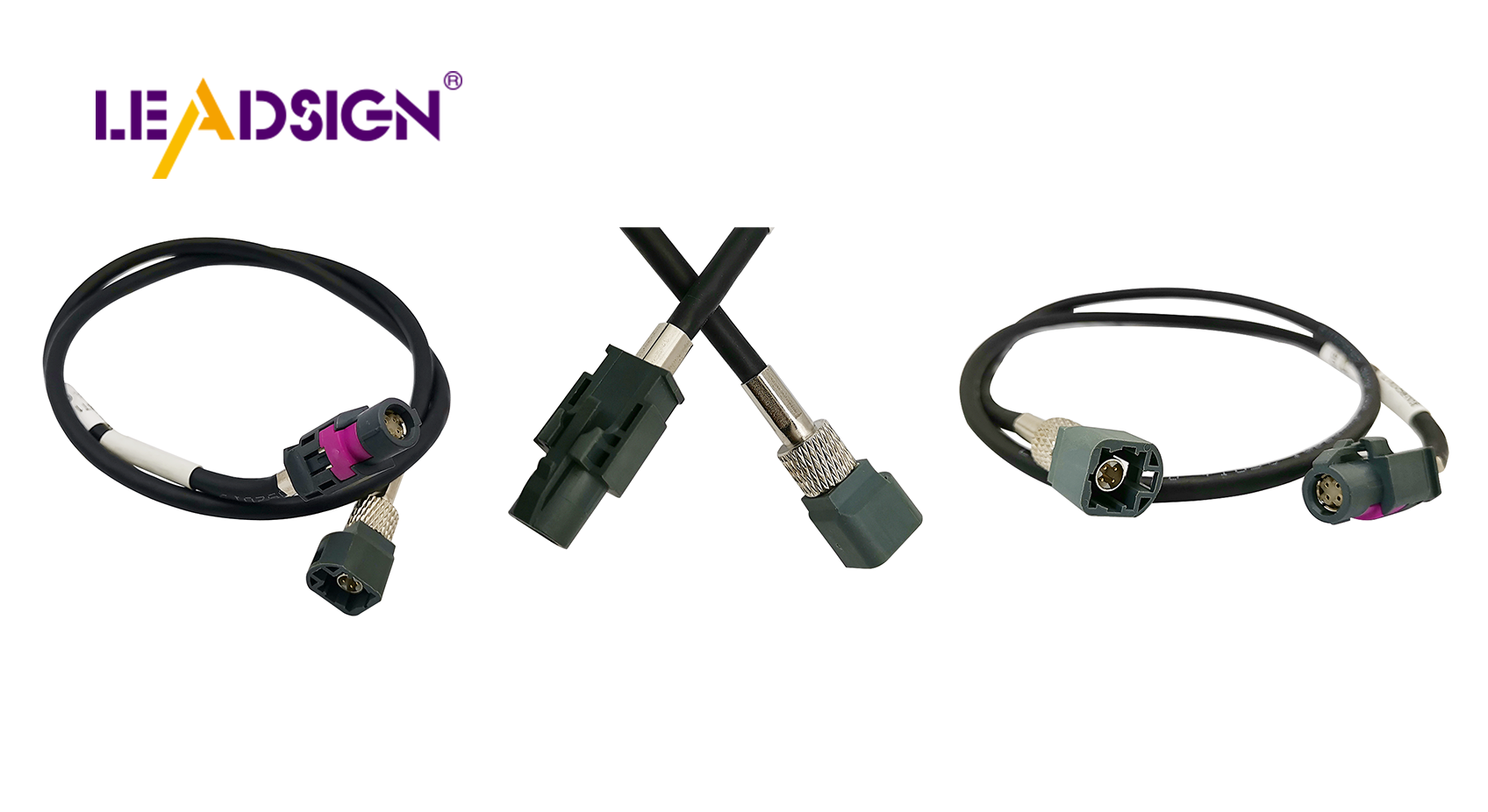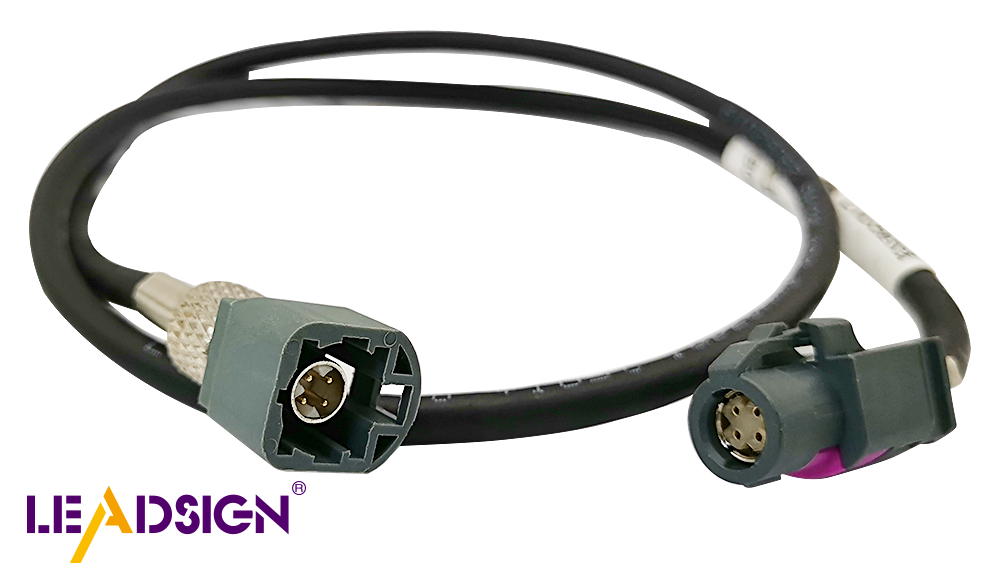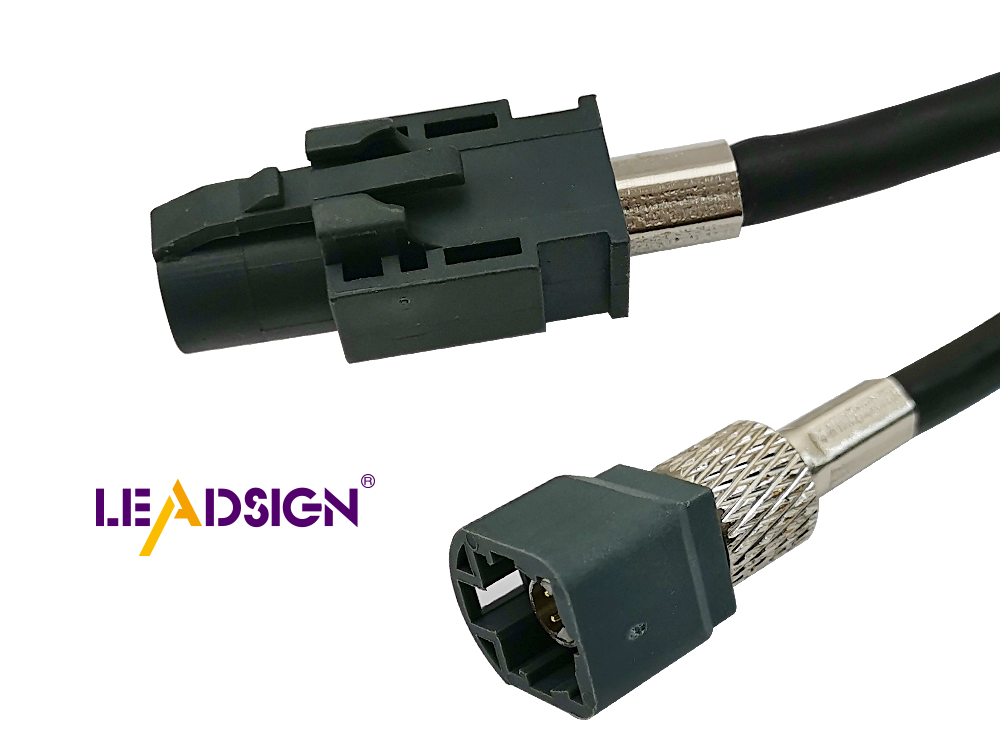Choosing the Right Car Wire Connector Types for You

Selecting the appropriate automotive wiring connector types is crucial for maintaining reliable connections in your vehicle. These connectors play a vital role in ensuring the integrity of your car's electrical system, especially in withstanding temperature variations. Understanding the various automotive wiring connector types available will help you make informed decisions to safeguard your vehicle's functionality and safety.
Understanding Car Wire Connectors

What are Car Wire Connectors?
Definition and Function
Car wire connectors are important parts of your car's electrical system. They join wires and cables to keep electricity flowing well. These connectors help different car systems work smoothly, like the engine, lights, and music systems. By keeping connections tight, they stop electrical problems and make sure your car works safely.
Importance in Automotive Systems
In cars, wire connectors are very important. They make sure all electric parts work right, which is key for your car's safety and performance. Without good connectors, you might have bad connections or even system failures. Picking the right ones can make your car last longer and be more reliable.
Common Types of Car Wire Connectors
Knowing about different connector types helps you choose wisely. Here are some common ones:
Butt Connectors
Butt connectors are often used in cars. They link two wires end-to-end securely with insulation. They're great for fixing or adding wires in your car.
Bullet Connectors
Bullet connectors let you connect or disconnect wires easily. They have a male and female part that snap together, useful where wires need frequent unhooking like in lights or audio systems.
Quick Disconnects
Quick disconnects or spade connectors allow fast connections. They have a flat design that fits into a matching slot. They're used where parts need regular checks or swaps.
High-Speed Data (HSD) connectors
High-Speed Data (HSD) connectors send high-speed data in car electronics. They're used for cameras, USB ports, and digital entertainment systems. HSD ensures strong connections for data-heavy tasks in modern cars.
Pros and Cons of different connector types

Picking the right automotive wiring connector is key for your car. Each type has good and bad points. Knowing these helps you choose better.
Butt Connectors
Pros
Easy to Use: Butt connectors are simple to install. You need few tools.
Strong Connection: They hold wires tightly, stopping them from coming apart.
Good Insulation: They keep out water and rust.
Cons
Not Flexible: Once joined, they are hard to undo if changes are needed.
Bulky Size: They might not fit in small spaces.
Bullet Connectors
Pros
Quick Disconnect: Bullet connectors let you unplug wires fast, great for frequent access.
Small Design: Their tiny size fits tight spots well.
Cons
Less Secure: They may not hold as tightly, causing disconnections sometimes.
Low Current Limit: These can't handle high power well.
Quick Disconnects
Pros
Fast Setup: You can connect or disconnect wires quickly, saving time.
Versatile Use: Good for lights and sound systems.
Cons
Wears Out Easily: Using them a lot can make them wear out over time.
Shakes Loose Easily: In shaky places, they might come loose, affecting work.
Knowing these pros and cons helps pick the best connector for your car needs. Think about ease of use, safety, and what you need it for to keep your car working well and safe.
High-Speed Data (HSD) Connectors
High-Speed Data (HSD) connectors are very important in new cars. They help parts talk fast to each other. These connectors are used for things like cameras and USB ports.
Pros
Fast Data Move: HSD connectors send lots of data quickly. This helps with car features like maps and music systems.
Strong Build: These connectors can handle tough car conditions. They resist heat, shaking, and signals that might mess them up.
Many Uses: You can use HSD in different car systems. They work with USB, Ethernet, and LVDS.
Tight Fit: HSD connectors lock well so they don't come apart easily.
Cons
Hard to Set Up: Putting in HSD connectors needs special tools and skills.
More Expensive: Because they have cool features, HSD costs more than other types.
Not for All Cars: Some cars can't use HSD connectors, so check first if they fit your car.
Knowing the good and bad sides of HSD helps you pick the right ones for your car's needs.
Buying Guide for Car Wire Connectors
Things to Think About
Fits Your Car
Make sure connectors fit your car's needs. Cars have different electric systems. Pick connectors that match your car's type. This helps all parts work well together and stops problems.
Strong and Good Material
Get connectors made from strong stuff. Strong ones handle heat, wetness, and shaking. They last long and don't need changing often.
Easy to Put In
Pick connectors that are simple to put in. Easy ones save time and stop mistakes. Quick-to-use connectors make fixing your car easier.
Why Right Connector Helps
Better Performance
Good connectors help your car run better. They let parts talk well, like the engine and sensors. This makes driving smoother.
More Safety
Safety is very important. Good connectors stop electric problems that can be dangerous. Picking right ones keeps all parts working safely.
"Knowing what your car needs stops big errors." This shows why smart choices keep your car safe and working well.
Frequently Asked Questions (FAQ)
How to Pick the Right Connector for My Car?
To choose the right connector, think about:
Specific Use: Know what you need it for. Different jobs need different connectors.
Compatibility: Make sure it fits your car's system. Wrong ones can cause problems.
Environment: Think about where you'll use it. Some places need stronger materials.
"Small changes in environment can greatly affect a connector's reliability." — Lectromec
Can I Use Any Connector Type for All Wiring Needs?
No, not every connector works for all situations. Each type has a special use:
Design: Connectors are made for certain tasks.
Conditions: Some handle heat or wetness better.
"Think about its current rating, circuit density, wire size, voltage, and engagement force." — D & F Liquidator
What are Signs of a Bad Connector Choice?
Look out for these signs of a bad choice:
Frequent Disconnections: If wires keep coming loose, it's not the right one.
Rust: Rust shows poor material choice.
Electrical Problems: Regular issues mean it can't handle the load.
"Small changes in environment can greatly affect a connector's reliability." — Lectromec
Picking the right connector makes sure your car works well and safely.
Choosing the right wire connectors is very important for your car. These small parts help different systems talk to each other well. This stops common problems like loose connections. Think about the types and factors we talked about to choose wisely. Each connector has a special job, so know what you need. Picking the right ones makes your car last longer and work better. Use the right tools to put them in and check they fit tight. A smart choice now can stop future troubles and keep your car running nicely.
See Also
Exploring the Significance of FAKRA Connectors in Modern Cars
Unveiling the Value of FAKRA Connectors in Auto Uses
Discovering the Advantages of FAKRA Car Connectors
Enhancing Car Data Transfer: Cutting-Edge Connectors and Wires

